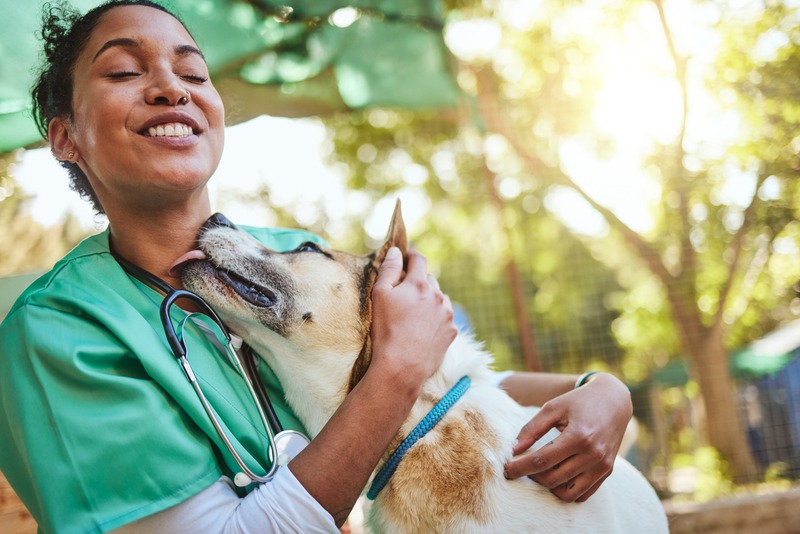When we picture a healthy and happy dog, we often imagine one with a shiny coat, bright eyes, and a tongue that seems ready to give out endless kisses. But what about their teeth? Dental health often goes unnoticed until there’s a problem, yet it’s just as crucial in maintaining your furry friend’s overall well-being. Let’s talk about how something as simple as regular veterinary dentistry can keep long-term health issues at bay for your canine companion.
The Importance of Dental Health in Dogs
It’s easy to overlook our dog’s dental health; after all, it’s not like they can complain about a toothache. But poor dental hygiene can lead to more than just bad breath—it can be the starting point for serious health complications. Plaque and tartar buildup can cause gum disease, which in turn may lead to tooth loss and infections that can spread to other parts of the body.
Understanding the Risks of Dental Diseases
Gum disease isn’t just uncomfortable for your dog; it can also be a gateway for bacteria to enter the bloodstream. This can lead to infections affecting the heart, liver, and kidneys. The risk isn’t small either; studies suggest that the majority of dogs show signs of dental disease by just three years old. That’s why preventive care through regular dentistry checks can be a key player in managing your dog’s health.
The Role of Regular Veterinary Dentistry
So, what can regular dentistry do for your dog? Well, it’s not just about keeping those pearly whites gleaming. A thorough dental exam can catch potential problems before they escalate. Dentistry at Hyde Park Veterinary Clinic includes a comprehensive examination, cleaning, and sometimes digital dental radiography. Together, these practices ensure that any underlying issues don’t go unnoticed.
The Benefits of Professional Cleanings
Professional dental cleanings for pets offer multiple health advantages that extend beyond a clean set of teeth:
-
Plaque and Tartar Removal: Vets are equipped to remove stubborn plaque and tartar buildup that regular brushing and chew toys cannot.
-
Safe and Thorough: Anesthesia is administered for a comprehensive cleaning, which keeps your pet comfortable and still.
-
Disease Prevention: These cleanings help prevent gum disease, tooth decay, and subsequent infections that can spread to other organs.
-
Improved Oral Health: Professional cleanings help avert tooth loss and promote a healthier mouth environment.
Ultimately, vet-conducted dental cleanings are essential for your pet’s overall well-being, contributing to a longer and healthier life.
Spotting Early Warning Signs at Dental Checkups
Routine dental checkups are key in ensuring your oral health remains in top condition. Here’s why they’re critical:
-
Gum Health: Veterinarians can identify early signs of gum inflammation, which might indicate the onset of periodontal disease.
-
Teeth Integrity: Catching cracked or broken teeth at an initial stage can prevent further damage and avoid potential infections or tooth loss.
-
Abnormal Growths: Early detection of unusual growths in the mouth can be a lifesaver. These checkups facilitate prompt investigation and treatment should there be cause for concern.
Being proactive with dental health can stave off major issues down the line. Don’t skip your routine dental check-ups; they’re your first line of defense against dental distress.
Home Care and Veterinary Expertise: A Winning Combination
While regular vet checkups are essential, we, as pet owners, can contribute significantly to our dog’s dental health. Feeding them a proper diet, providing appropriate chew toys, and brushing their teeth at home are all vital components. Vets can guide us on how to effectively clean our dog’s teeth and recognize when something’s amiss.
How Dental Health Affects Overall Health
The connection between dental health and overall health cannot be underestimated. Good oral hygiene can dramatically extend a pet’s life expectancy, as it directly affects their nutritional intake and prevents harmful bacteria from causing systemic illness.
Oral Bacteria and Systemic Diseases
We often forget that the mouth is part of a larger ecosystem within the body. Bacteria from periodontal disease can end up in places they shouldn’t, leading to heart, kidney, and liver disease. It’s a ripple effect where one issue leads to another, and it’s startling how often these conditions link back to dental health.
Understanding the Signs of Dental Problems in Dogs
Being alert to the health of our furry friends is paramount, especially when it comes to their dental care. Below is a concise list of warning signs indicating potential dental issues that should prompt a visit to the veterinarian:
-
Bad Breath: A noticeable, persistent offensive odor from the mouth may signal oral disease.
-
Difficulty Eating: Watch for changes such as hesitancy to chew or dropping food.
-
Pawing at the Mouth: This could indicate pain or irritation within the oral cavity.
-
Visible Discomfort: Signs of distress when eating or yelping when the mouth is touched should be taken seriously.
If any of these signs are present, it’s critical to schedule a dental checkup to protect your dog’s health and well-being.
Integrating Dental Care with General Well-being
We cannot talk about maintaining our pet’s health without highlighting the significance of regular wellness exams for cats and dogs. These checkups give vets a chance to conduct a full physical examination, which includes dental assessment, and keep your pet’s vaccinations up to date. Combining dental care with these wellness exams ensures a proactive approach to your pet’s health.
Preventive Measures Beyond Dentistry
Besides dentistry, there are other preventive measures to consider in maintaining the health of your pet. A big part of that preventative care comes with pet vaccinations. These vaccinations protect your furry friend from various diseases and are as crucial as dental care in their overall health plan.
The Cost of Neglecting Dental Health
It’s also worth considering the financial impact of neglecting your dog’s dental health. Veterinary dental procedures can become costly, especially when issues are left to rot into more severe conditions. Consistent dental care can help you avoid these bigger bills and spare your pet from unnecessary pain.
Partnering with Your Vet for the Best Dental Care
We must work together with our veterinarians to tailor a dental care plan that suits our dog’s unique needs. Different breeds have different dental challenges, and only a vet can help us navigate these specifics effectively.
Embracing Dental Checkups as Routine
Embracing the routine of dental checkups can make a world of difference to your dog’s health. It’s an investment in their future, mitigating the risk of disease and promoting a better quality of life.
Education and Advocacy: Spreading the Word about Dental Health
Education on the importance of dental care is still needed. As responsible pet owners, we can advocate for better dental hygiene by sharing knowledge and encouraging others to make it a priority for their pets.
Dental Health: A Reflection of Your Care and Commitment
Our dog’s dental health is a mirror of the care and attention we provide. Every time we schedule a dental visit or brush those canines at home, it’s an act of love that speaks volumes about our commitment to their well-being.
Final Thoughts
To sum up, regular veterinary dentistry is more than just fighting bad breath or cleaning teeth; it’s about safeguarding our pets against preventable diseases. By making oral care an integral part of our dog’s health regime, we’re ensuring they lead a longer, happier life. Let’s continue to give them the best care possible, starting with a smile that’s as healthy on the inside as it is vibrant on the outside.




